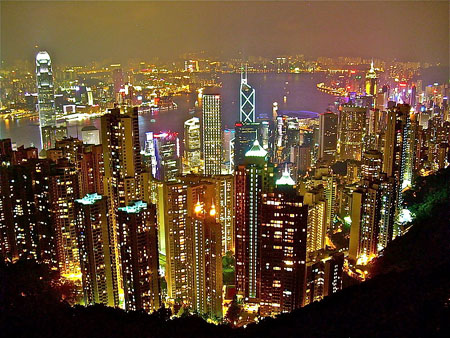by WorldTribune Staff, May 27, 2020
The U.S. State Department has certified to Congress that Hong Kong is no longer autonomous from China.
“This decision gives me no pleasure. But sound policy-making requires a recognition of reality,” Secretary of State Mike Pompeo said in a statement on Wednesday.

“It is now clear that China is modeling Hong Kong after itself,” Pompeo said, adding that the decision holds implications for the future of economic ties and could lead to sanctions against China.
The State Department is required by the Hong Kong Policy Act to assess the autonomy of the territory from China.
Related: President Trump could sanction Xi Jinping over ending Hong Kong’s autonomy, May 26, 2020
Pompeo cited the Chinese Communist Party’s intention to impose national-security legislation on Hong Kong as a motivating factor for the State Department’s decision to declare Hong Kong is no longer autonomous. He said the U.S. government continues to stand with the people of Hong Kong in their struggle for autonomy.
Last week, China announced its plan to impose new national security laws that override Hong Kong’s system of self-governance.
‘White House Press Secretary Kayleigh McEnany told reporters on May 26 that President Donald Trump said “he’s displeased with China’s efforts, and that it’s hard to see how Hong Kong can remain a financial hub if China takes over.”
The Wall Street Journal noted in a May 27 report:
U.S. endorsement of Hong Kong’s special status has served as a seal of approval of the city’s role as a global financial center with Western-style rule of law. The new assessment is likely to diminish confidence among U.S. and other foreign businesses in Hong Kong.
Among the practical outcomes of the special status, the U.S. has permitted exports of advanced technology equipment to Hong Kong that isn’t allowed to be sold elsewhere in China. It also has provided U.S. support for Hong Kong’s separate representation on global bodies from the World Health Organization to the Asian Development Bank.
The 1992 Hong Kong Policy Act has allowed the U.S. to treat Hong Kong as a separate entity from mainland China and required the State Department to assess on at least an annual basis the autonomy of Hong Kong from communist China.
Each year since then, with support from Congress, the U.S. president has certified that Hong Kong retains its semi-autonomy and as such is entitled to treatment in trade, investment and other commercial affairs akin to an independent country.
White House national security adviser Robert O’Brien said: “I just don’t see how [the financial industry] can stay” in Hong Kong. “One reason that they came to Hong Kong is because there was the rule of law there, there was a free-enterprise system, there was a capitalist system, there was democracy and local legislative elections. If all those things go away, I’m not sure how the financial community can stay there.”
There are over 1,000 American businesses operating in Hong Kong.
Intelligence Brief __________ Replace The Media
